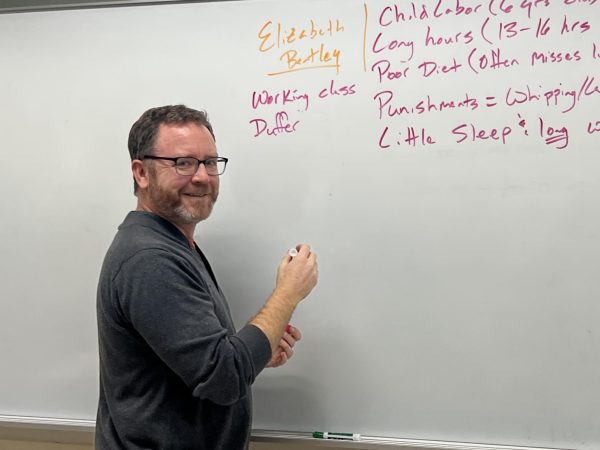Parent Pressure on Students’ Grades: Helpful, or Hurtful?
Parents of all high school students care about their child’s academic success, and this is especially evident in Hopkinton, which has one of the best high schools in the country. However, that care can sometimes go a little too far and cause their children undue stress. Although the students’ grades benefit as a result, is all the pressure worth it?
Students feel this strain on their mindset mainly through their parents’ expectations for grades, standardized tests, and even their schedules. Parents may badger their kids through these strategies because they think that it is what’s best for their children, even though students may feel differently. There is controversy around this method too, as some people wish students to be more independent so they can prepare themselves for life after high school.
Additionally, the pressure students feel can cause them to act in ways that will please their parents, but maybe not themselves. With Hopkinton having an elite school system, along with a top 25 median income in Massachusetts, one can only assume that most students here feel this to an even greater extent.
One of the aspects of this era that affects this situation is grades being published online. Hopkinton now uses PowerSchool, a grade publishing service that leaves grades open at all times and can send notifications to parents when their children receive a score on an assignment or test. However, according to The Bump, a website for parenting and family advice, this constant information “creates a situation where parents can start to obsess over every single score.”
Also, students sometimes will want to meet their parents’ high expectations in whatever way they can, even if it involves unfair actions. In order to achieve their expected grades, students will sometimes cheat on assessments. According to Stanford News, an adult monitoring Stanford classes said there was cheating “‘in every class a test was administered.’”
Physics teacher Elizabeth Petruska said that pressure from parents is unnecessary, and even potentially harmful, to students.
“Parents always put too much pressure on their kids. If I have students in front of me, I wish that they were here because they wanted to be here and they wanted to learn,” Petruska said. “Parents putting pressure on students doesn’t help them in the least because then they’re trying to achieve for somebody else, which is a dead end. You have to be able to achieve for yourself.”
HHS mother Ann Brady, who considers herself a hands-off parent, said that it’s best if kids know how to go about things mostly on their own.
“My husband and I worked very hard to get to where we are today, so we try to exemplify the parents who put in the effort to give their children the things that we didn’t have growing up,” Brady said. “That being said, I feel very strongly that children should have a lot of free time, shouldn’t be over-scheduled, and that parents should be there for them when they have difficulties in school. We give them direction, but we’re not constantly over their shoulder. If they need our help, we tell them that they have to ask for it.”
Senior Jason Tau, whose father is a mathematics professor, said that his parents put tremendous pressure on his standardized test performances.
“Doing well on standardized tests is basically just as important as doing well in school,” Tau said. “Doing badly, or even below average, on a standardized assessment is the equivalent of failing a test.”
Counselor Michael Flanagan deals with a handful of these students on a yearly basis, and said the biggest problem these students face is, “juggling their schedule. The biggest thing is trying to prioritize things, and if they are failing, they may have to consider omitting certain activities. It’s important to have discussions either with a family member or advisor to prioritize their time as balanced as possible.”
Some students have to deal with parents who have different philosophies as to how they want their child’s academics to be handled. Senior Jake Neary is one of these students.
“My dad put me into hockey and wanted me to continue to play, but my mom wanted me to focus on academics,” Neary said. “When I would want to go to hockey, she would sometimes say, ‘No, you have to finish your homework first,’ but my dad would also let me do it after practice.”
This is a tough situation for families to deal with. If the parental pressure works, then students will have higher grades, but will feel stress from their parents that they may not feel comfortable discussing. However, if the pressure doesn’t improve the students’ grades, parents might think they aren’t doing enough, and will push their kids even more.
But no matter what the parents do, the responsibility of learning will ultimately fall on the student, Petruska said.
“By the time you finish high school, nobody can force you to do anything. The student that wants to learn will learn, and the student who doesn’t want to learn isn’t going to learn, no matter how much parental pressure there is.”









